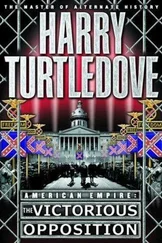All this went through my mind in about the time it took to finish exhaling, inhale, and begin to talk. If Forbes had caught me on an inhale, I must have just started talking before I stopped to think. As it was, I said, “I really think that’s something you ought to take up with the constabulary. They know more about it than I do.”
Forbes looked unhappy; I guess he saw from my answers that he wasn’t going to get any exciting revelations from me. He asked a couple of innocuous questions, then tried once more with something substantive: “What sort of Thomas Brothers records were you using in your own investigation?”
Maybe he’d hoped I’d not notice that one was charmed, and would blab away. But I didn’t; I answered, “I’d rather not comment, since the investigation is still under way.” The fellow’s laziness irked me as much as anything else. If he’d known This Side from the Other, he could have gone down to the Criminal and Magical Courts Building and found the parchments I’d filed to get my search warrant. But no—he wanted me to do his work for him.
Well, I had enough work of my own. I said as much: “I’m sorry, Mr. Forbes, but I really have to get upstairs now.”
“Thank you, Inspector David Fisher of the Environmental Perfection Agency,” Forbes boomed, just as if I’d told him something worth knowing. I pitied his poor imp. It didn’t look very bright, but I wouldn’t have been very bright after listening to and transmitting the mind-numbing stream of chatter Forbes turned out.
I’d hoped to start getting some serious work done on the sorcerous contamination at the Devonshire dump itself, but I hadn’t taken into account its being Monday morning. Monday morning under Beatrice Cartwright is a ritual that, while not as old as the Mass or synagogue Sabbath rite, is every bit as sacred: the staff meeting.
Monday morning, everybody in the department sits around for two, two and a half hours listening to what everybody else is doing. About ninety-nine times out of a hundred, what everybody else is doing is, to put it mildly, irrelevant to what you’re doing yourself, and you could better spend the time actually doing whatever it is you can’t do while you’re sitting around in staff meeting (thank God we’re an Agency, not a Department, the way some people back in D.St.C. want; if we were a Department we’d probably meet twice a week, not just once).
I mean, in an abstract kind of way I was glad to hear that Phyllis Kaminsky was working closely with the constabulary to make several Angels City streets less congenial to succubi; vice of that sort does need to be combated. But even if her report did earn Phyllis a pat on the fanny from Bea, I didn’t need to know all the ichor-filled details.
And I didn’t need to know about the aerial garlic spraying Jose Franco was working on with some of the horticulture people at UCAC to try to slow down the little vegetable vampires that have played such havoc with the local citrus crop over the past few years, ever since they got here in a cargo of imperfectly exorcised lemons from Greece. It wasn’t that I had anything against Jose or his project; I don’t want to have to pay three crowns for an orange any more than anyone else. But just the same, Medvamps aren’t my biggest worry in the world.
For that matter, even though people looked more interested than usual (which isn’t saying much) when I talked about the Devonshire mess, it didn’t have a whole lot to do with their lives or their jobs. But Bea likes to soak it all in, so every Monday morning we meet. World without end, amen, or so it seems in the middle of a staff meeting, anyhow.
At last we were released; I felt as if I were upward bound from purgatory (no, not a Jewish concept, but useful all the same). I staggered off to the jakes with the staff graphic artist. “At least here I know what I’m doing,” I said as we stood side by side. Mart°n laughed and nodded; he’s about as fond of staff meetings as I am.
Having accomplished at least one worthwhile thing that morning, I went back to my desk to see if I could make it two. I wished the thaumatech had been able to catch more about the incendiary sorcery that had torched the Thomas Brothers monastery; it might have given me a better notion of which toxic spell components to be alert for, and from that which consortia to suspect. But if magic were just wishing, life would be too simple to stand.
I made myself a new chart, an expanded version of the one I’d done on my kitchen table the week before. This one broke things out not just by consortium and type of business, but also by specific type of contaminant. In lieu of turning the chart three-dimensional, I assembled a neat battle line of quills, each in an inkstand of a different color (to be sure I had enough, I’d borrowed some from Mart°n’s immense supply).
Just when I was ready to buckle down to some serious work, the phone yammered at me. I didn’t say what I thought, but I thought it real loud. That, of course, didn’t make the phone shut up. I spoke to the mouthpiece imp: “David Fisher, Environmental Perfection Agency.”
“Good morning, Dave—Tony Sudakis calling.”
“Good morning, Tony. How are you?” Half my annoyance went away; at least the call had something to do with the case I was working on. “What’s up?”
“I heard about the Thomas Brothers fire over the weekend. Terrible thing. Those are good people there. We need more like ’em.”
“That’s certainly true. But there are less like them now—eleven less, I understand.”
“Yeah, I know.” A pause. I was getting used to pauses from people I talked with, which is not to say I liked them any too well. Once Tony was finally done with his, he went on, “I just want you to know that the Devonshire Land Management Consortium didn’t have thing one to do with this fire.”
I chewed on that, found I didn’t care for the taste. As politely as I could, I pointed out, “Tony, you can speak for yourself, but how can you go about declaring your whole consortium innocent?” Oh, he could declare it, sure, but how was he supposed to make me believe it?
He surprised me—he found a way that sort of worked: “The consortium management staff is contributing twenty-five thousand crowns to the constabulary’s reward fund for the capture and conviction of whoever fired the place.”
“Interesting,” I said, and it was; interesting enough to write down, in fact. Figuring out exactly what it meant wasn’t so simple. The most obvious interpretation was that management staff was innocent. The other possibility was that somebody up there was guilty as sin and had found a particularly devious way to cover his—or even her—tracks. In the absence of further data, I just had to note it and go on.
Sudakis was dealing with my pause now. Into it, he said, “You don’t take anything on trust, do you, Dave?”
“I trust in God,” I answered. “He has a more reliable record than most of the people I know.”
“Life must be easy if you can honestly give all your allegiance to one omniscient, omnipotent deity,” Sudakis said. “But I didn’t call you up to talk theology with you. I wouldn’t mind doing that over some beer one day, but now now. I’ve said what I needed to say, and I’ve got the usual swamp full of alligators here.”
He meant that more literally than most people who use the line—and his particular swamp held worse things than mere alligators. We said our goodbyes and hung up. I looked at the phone for a few seconds afterwards. Maybe Sudakis never had reconciled himself to Christianity, or to monotheism generally. That last comment of his made me wonder. Well, the Confederacy is a free country. He could believe whatever he wanted, as long as the didn’t go burning down monasteries to make his point.
Читать дальше












